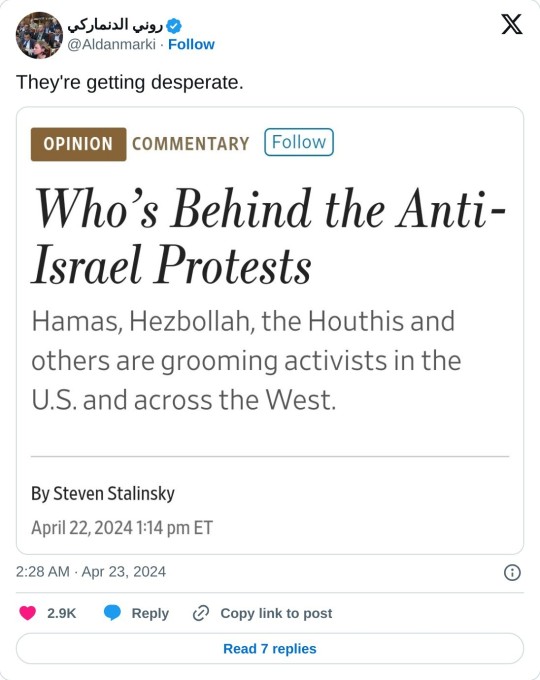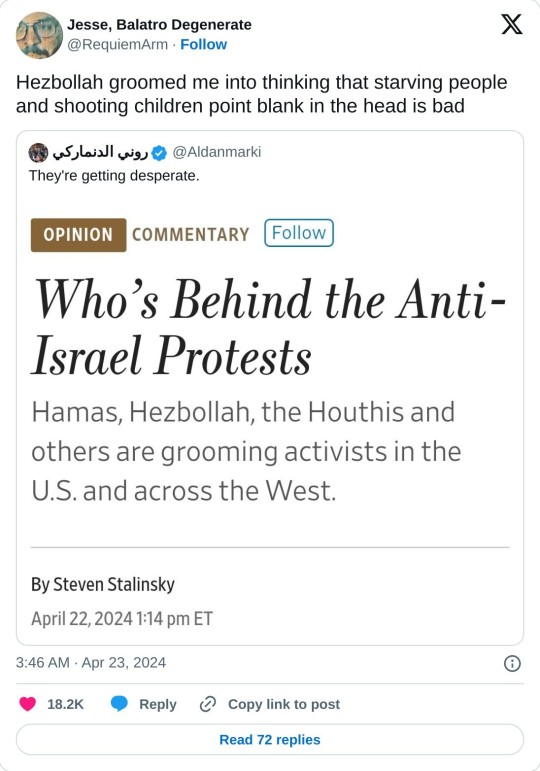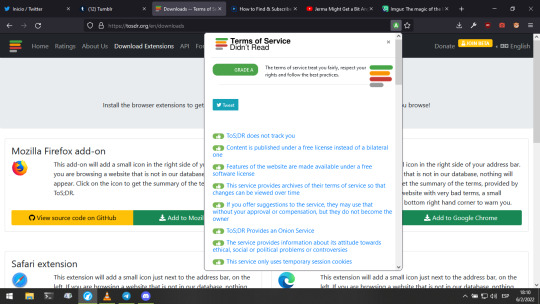Link
A child of slaves, Harry Haywood became a pioneer theorist of Black Power and a leader of the communist movement in the thirties. Black Bolshevik is a dramatic and personal narrative of fifty years of the Black struggle and the American left, including first-hand accounts of the Chicago race riot of 1919, the defense of the Scotsboro Boys, organizing sharecroppers in the South, and the Spanish Civil War. Author of the classic ‘Negro Liberation,’ member of the Communist Party’s Politburo and head of its Negro department in the thirties, Haywood was expelled as a dissident in the fifties. Amiri Baraka called this a 'powerful political journal… The sweep of history and event contained in this book will fascinate any serious reader.’
5 notes
·
View notes
Link
1 note
·
View note
Link
1 note
·
View note
Text
Y'all, the world is sleeping on what NASA just pulled off with Voyager 1
The probe has been sending gibberish science data back to Earth, and scientists feared it was just the probe finally dying. You know, after working for 50 GODDAMN YEARS and LEAVING THE GODDAMN SOLAR SYSTEM and STILL CHURNING OUT GODDAMN DATA.
So they analyzed the gibberish and realized that in it was a total readout of EVERYTHING ON THE PROBE. Data, the programming, hardware specs and status, everything. They realized that one of the chips was malfunctioning.
So what do you do when your probe is 22 Billion km away and needs a fix? Why, you just REPROGRAM THAT ENTIRE GODDAMN THING. Told it to avoid the bad chip, store the data elsewhere.
Sent the new code on April 18th. Got a response on April 20th - yeah, it's so far away that it took that long just to transmit.
And the probe is working again.
From a programmer's perspective, that may be the most fucking impressive thing I have ever heard.
43K notes
·
View notes
Text
Real glad Trump lost in 2020 and we were able to avoid all the genocide and state repression of a fascist government.
11 notes
·
View notes
Photo




Abeshi 次はWF2016冬
@Abeshi15
ルパン三世 カリオストロの城 公開記念日!と言う事で過去作UP します。まずは、指輪。金と銀の紋章付きの指輪は複製して、ワンフェス販売のルパン&クラリスのおまけパーツにします。 #カリオストロの城36周年 #ルパン三世
325 notes
·
View notes
Text
youtube
4 notes
·
View notes
Note
I really like the second, tinier Zizek hidden in your blog banner
he's always vigilant for ideology
1 note
·
View note
Text
My libshit friends blamed the "stalling" of the Ukraine/Israel/Taiwan military appropriations bill on Russian influence on the Republican party.
Reality is becoming an extremely tenuous subject for The Narrative™


3K notes
·
View notes
Text
Many US papers are giving front-page, above the fold treatment to university administrators going wild and calling in the cops on peaceful campus protests, first at Columbia, followed by Yale and NYU. Harvard, in a profile in courage, closed its campus to prevent a spectacle. Demonstrations are taking hold at other campuses, including MIT, Emerson, and Tufts.
This is an overly dynamic situation, so I am not sure it makes sense to engage in detailed coverage. However, some things seem noteworthy.
First, in typical US hothouse fashion, the press is treating protests as if they were a bigger deal than the ongoing genocide in Gaza. I am not the only one to notice this. From Parapraxis (hat tip guurst; bear with the author’s leisurely set-up):
I am employed as a non-tenure-track professor in a university department dedicated to teaching and research about Jews, Judaism, and Jewishness. One day, I arrived at work to find security cameras installed in my department’s hallway. I read in an email that these cameras had been installed after an antisemitic poster was discovered affixed to a colleague’s office door. I was never shown this poster. Like the cameras, I learned of it only belatedly. Despite the fact that the poster apparently constituted so great a danger to the members of my department as to warrant increased security, nobody bothered to inform me about it. By the time I was aware that there was a threat in which I was ostensibly implicated, the decision had already been made—by whom, exactly, I don’t know—about which measures were necessary to protect me from it. My knowledge, consent, and perspective were irrelevant to the process…
The prolepsis of the decision did more than protect me—if, indeed, it really did that. It interpellated my coworkers and myself as people in need of protection…. I was unwittingly transformed, literally overnight, into the type of person to whom something might happen.
My employer has a campus—three, actually—meaning that it has a physical plant. I navigate one of these campuses as my workplace, but it almost never figures for me as “the campus.” In fact, the first time since beginning the job when I felt myself caught up in an affective relation, not to the particular institution where I work, but rather to “the campus” was when I looked up into that security camera and felt myself being “watched” by it. Only then did I think, a couple of months into my temporary contract, that I was not just at my workplace. Now I was on “the campus.”
This incident with the poster and the camera occurred, of course, some weeks after the October 7 Hamas attacks on Israel and the onset of Israel’s retaliatory military campaign in Gaza. Against so horrific a backdrop, and relative to the intimidation and retaliation to which those who speak out against the war (including—indeed, especially—in the academy) have been subjected, my story sounds banal. And it is. In its very ordinariness, however, the anecdote is quite representative: first, of how decisions get made at contemporary institutions of higher education (generally speaking, without the input of those whom they impact); and second, of the logic of a peculiarly American phenomenon I call campus panic….
The months since October 7 have aggravated the most extreme campus panic I have witnessed. To judge by the American mass media, the campus is the most urgent scene of political struggle in the world. What is happening “on campus” often seems of greater concern than what is happening in Gaza, where every single university campus has been razed by the IDF. When all the Palestinian dead have been counted, it seems likely that these months will be recorded as having inflamed a campus panic no less intense than the one that accompanied the Vietnam War.
Second, many otherwise fine stories, like Columbia in crisis, again by the Columbia Journalism Review, and Columbia University protests and the lessons of “Gym Crow” by Judd at Popular Information, start off with the 1968 protests at Columbia as a point of departure. And again, consistent with the Parapraxis account and being old enough to remember the Vietnam War, I find the comparison to be overdone. Yes, there are some telling similarities, like the role of right-wing pressure in getting campus administrators to call out the cops, the device of dwelling on the earlier uprising seems to obscure more than it reveals. The Vietnam War, unlike Gaza, tore the US apart. Today’s campus students are, with only the comparatively small contingent of Palestinian students, acting to protest US support of slaughter in Gaza. In 1968, for many, the stake were more personal. The risk of young men having to serve was real.
Similarly, conservatives then supported the military and were typically proud of their or any family member’s service. Draft dodging and demonization of armed forces leaders was close to unconscionable. It took years of the major television networks and the two authoritative magazines, Time and Newsweek, showing what the war looked like, and intimating that the US was not succeeding, that shifted mass opinion.
And even the initial 1968 protests were more disruptive. The first wave at Columbia occupied some campus buildings, presumably disrputing operations. Today’s were encampments, as in outdoors. So they were more analogous to Occupy Wall Street, where the ongoing rebellion was an offense to authority even if it caused harm. But worse, the ones at Columbia and other schools now are by elites in training, and not presumed loser riff-raff.
So the aggressiveness of the crackdown looks like very insecure leadership. For instance, why escalate to calling in the NYPD immediately, as opposed to campus police, when the city’s cops reported everyone cooperated with the arrests?
This takes us to the third issues, that it isn’t just the students who oppose the stifling of protest, but also faculty. From the Popular Information article:
[President] Shafik’s actions were blasted in a statement issued on Friday by the Columbia and Barnard College chapters of the American Association of University Professors:
Shafik also drew a rebuke from the Columbia student council. In a statement, the council said that “students possess the inherent right to engage in peaceful protest without fear of retribution or harm” and called for “the preservation of freedom of speech and expression among students.”
Popular Information also points out how the Biden Administration is, natch, whipping up fear about possible dangers to Jews while ignoring that Muslims have been on the receiving end. Recall that ex-IDF soldiers who attacked pro-Palestinian protestors at Columbia in January went unpunished. Again from Popular Information:
On Sunday, the White House released a statement in response to the protests at Columbia, denouncing “calls for violence and physical intimidation targeting Jewish students”:
What incidents prompted this statement? A White House spokesperson did not immediately respond to a request for comment. But some media outlets are interpreting it as a response to this video, in which two unidentified men promise more terrorist attacks against Israel. According to the individual who posted the video, the incident did not occur on Columbia’s campus. There is no evidence that Columbia students were involved.
An NBC reporter, Antonia Hylton, who was on Columbia’s campus with protesters, reported no instances of “violence or aggression” among students.
Now we’ll turn to Rajiv Sethi, who as a professor at Barnard, has, for better or worse, a front row seat on the turmoil.
By Rajiv Sethi, professor of economics at Barnard College. Originally published at his website
My campus is in turmoil, and it’s hard to think or write about anything else. Dozens of students have been suspended, arrested, and barred from the premises. Others have been advised to leave for their own safety. Most entrances are closed altogether, and the few that remain open are guarded to prevent entry of non-affiliates. Calls for the resignation of leaders are coming from multiple quarters—some concerned about excessively punitive measures and others about inadequate enforcement and protection.
There are several reports on social media of harassment, intimidation, and the glorification of violence. Such reports often conflate what is happening outside the gates—involving people who may not be affiliates and who are on ground over which the university has no jurisdiction—with the protests on the South Lawn. Based on what I have seen personally, the latter protests have been peaceful, prayerful, and even joyful at times.1
I did see one sign directed at President Shafik that I felt was offensive and ill-advised. And there is one phrase—recently deemed anti-Semitic by an act of Congress—that has been repeated loudly and frequently within the gates. This post is about the meaning of that phrase, and about meanings and messages in general.
While on stage at a political convention in July 2015, Martin O’Malley said the following:
Black lives matter. White lives matter. All lives matter.
Taken literally, these words are entirely unobjectionable, even laudable. But O’Malley apologized for them within hours, saying: “That was a mistake on my part and I meant no disrespect.”
Why was the apology deemed necessary? O’Malley was running for the Democratic presidential nomination at the time, and to many of the voters he was courting, the words “all lives matter” had come to mean something else entirely—an expression of indifference to racial inequality at best, and perhaps even a racist dog whistle.
As phrases come to be endowed with new meanings, some people respond by carefully avoiding them, while others are motivated to adopt them with relish. This further entrenches the new meaning and reinforces the process of selective abandonment and adoption. Thus “Democrat Party” can come to be intended and perceived as an epithet, and the seemingly harmless chant “Let’s Go Brandon!” a vulgarity.
This process is decentralized and largely uncoordinated, and there is little that legislation can do to enforce the attachment of meanings to messages. Of course, this hasn’t prevented our elected officials from trying. On April 16, by a vote of 377-44, the House passed Resolution 883:
Expressing the sense of the House of Representatives that the slogan, “from the river to the sea, Palestine will be free” is antisemitic and its use must be condemned.
One day later, Columbia President Minouche Shafik was asked by Congresswoman Lisa McClain whether she agreed that such statements were indeed anti-Semitic. President Shafik answered as follows:
I hear them as such, some people don’t.
The problem with this response is that it suggests that listeners are free to assign meanings to expressions, regardless of the identities and intentions of speakers. But meanings are created jointly by speakers and listeners, and the same message can carry different meanings depending on what is known about the parties engaged in communication.
People have often appropriated and de-fanged racist, misogynistic, and homophopic insults aimed at the groups to which they belong. Even the most vile and vicious slur in the American language carries a different connotation when used by Randall Kennedy in conversation. The meanings of messages cannot be established independently of the indentities of those who use them. They cannot be established by listeners alone.
Thus the attempt by the House of Representatives to define the meaning of a phrase is likely to be futile. The meaning will evolve over time based on the process of selective avoidance and adoption. And this meaning is vigorously contested at present.
Consider, for instance, the Jerusalem Declaration on Anti-Semitism. This document states clearly that “denying the right of Jews in the State of Israel to exist and flourish, collectively and individually, as Jews, in accordance with the principle of equality” is anti-Semitic. However, it also proclaims:
It is not antisemitic to support arrangements that accord full equality to all inhabitants “between the river and the sea,” whether in two states, a binational state, unitary democratic state, federal state, or in whatever form.
President Shafik could have referenced the above in pushing back against the idea that meanings can be assigned by elected representatives or college administrators. I understand the pressure she was under, and it is difficult to give thoughtful responses under such circumstances. But it is important that moving forward, the use of this phrase alone not be used as a basis for disciplinary action.
One organization that I have come to admire over the past few years is the Foundation for Individual Rights and Expression (FIRE), which has been admirably consistent in defending freedom of speech on and off campus. On this phrase in particular, FIRE’s position is the following:
If students at a peaceful protest chant anti-Israel slogans like “From the river to the sea, Palestine will be free,” that speech, taken alone, is protected political expression. Even if some understand the phrase to call for the destruction of Israel, it is still—absent more—protected as political speech, advocating in general terms for violence elsewhere at an unspecified time against a broadly defined target… But context is determinative: Were the same statement to be directed at a specific Jewish student by a student or group moving threateningly towards him, during a protest that has turned violent and unstable, it may arguably constitute a true threat.
This is the right position to take and I hope that Barnard and Columbia will adopt it. The keynote by Killer Mike at the 2023 FIRE Gala explains in the clearest possible terms the value of this perspective, and it will join the Reith lecture by Chimamanda Adichie and the Stanford Memo by Jenny Martinez (along with the Kalven Report and the Chicago Principles) as a classic in the pantheon of free speech advocacy.
Among the people who have addressed the students on the South lawn are Madmood Mamdani and Norman Finkelstein; I caught the tail end of the latter’s speech but couldn’t hear much because amplification was limited and he tends to speak quite softly. I do hope that the students who invited him will read his latest book, which is as fierce a critique of identity politics as one is likely to find anywhere.

Norman Finkelstein addresses student protestors at Columbia on April 19th, 2024
I received a response to this post from Seth Weissman, whom I first met when he was a graduate student at Columbia many years ago. I remember Seth fondly, and have enormous respect for him. His message is posted (with permission) below:
Rajiv, as usual, a very thoughtful take. That said, you are missing something. I say this as someone who knows and respects you as fair-minded and as an Orthodox Jew who is:
So what are you missing? I’m all for “from the river to the sea, Palestinians will be free.” That could mean in a binational state alongside Jews living freely, or in two states, one Palestinian (West Bank, Gaza, and the Arab sections of Jerusalem such as Abu Dis) and the other a Jewish home where Arab citizens are accorded full rights, which is the current (albeit imperfectly realized) concept of Israel. This is in accordance with the Jerusalem Declaration.
But the chant, “from the river to the sea, Palestine will be free” explicitly and willfully denies Jewish self expression. In a context where some of the protestors (not all, and I am making no claim as to what percentage) have expressed solidarity with Hamas, it can be taken no other way. And while the majority of the protestors would denounce Hamas (I hope), they are standing shoulder to shoulder with those who empathize with Hamas.
FYI, I have the scars from confronting nationalism and Islamophobia on the Jewish side. If I could pay the price for denouncing Jewish nationalists on my “side,” I can expect the protestors at Columbia and Barnard to do the same—criticize Israel without providing political support for terror and anti-Semitism.
1
After posting this I came across a credible report of significant harassment and intimidation within the Columbia gates. All classes at Barnard and Columbia are remote today, which I imagine is a prelude to clearing out of the encampment.
10 notes
·
View notes
Text
"Vote for him and push him left" was the same bullshit they said four years ago and look where we are.

"you idiots are never going to move that mountain out of the way by pushing it. what you should be doing is pushing this cliff instead"
779 notes
·
View notes
Text
nobuddy feels like they have a sharp attention span these days, right? and we all just click “agree on terms of service” because its hard to love yourself sometimes, well
enter Terms of Service, Didn’t Read: a website and a browser addon that streamlines the terms of service of many popular web services to be read by the tech sunday drivers.

It’s graded from A (great) to E (awful) and if you have the addon you have access to the info about the website on your bar

82K notes
·
View notes
Audio
John Coltrane Quartet - I Wish I Knew (Ballads, 1962)
156 notes
·
View notes
Text
>trying to change sex is just the beginning

Bill Gates wants to literally control your access to sunlight but yeah the pronoun posse are the real monsters.

Once again I’ve become overly conscious over the fact that I’m really just a brain with tendrils controlling a meat mecha😔
71K notes
·
View notes
Text
It sounds like this is machine translated, but aside from a few wonky wording choices (at least I think they meant something like "pessimistic forecast" when said "national review published a terrible prophecy.") It doesn't sound like anything is incorrect, though I haven't heard anything about the alleged grain deal.
As far as the front collapsing this summer, it seems like chances are good. Shell factories in Germany, Britain, and US have gone offline due to explosions allegedly caused by Russian saboteurs. Nato stocks are already dangerously low and production is so vastly outstripped by consumption that it's going to be years before they make up the deficit. In Ukraine, the new mobilization bill just passed which should generate badly needed manpower for the Ukrainian army, but nearly enough to forestall mortal hemorrhaging very long. The "aid" bill in the US congress just passed, but most of that is just the government paying itself to restock on spent munitions.
Meanwhile rumor has it the British MI6 is warning that Russia is about to drop ten fresh brigades into the conflict come the end of May. Russia is already outgunning Ukraine 10-1 and making steady progress along the line. It seems like the fear in the west is for Kharkov, but the Ukrainians have started building defenses for it about twelve months two late. Not that it would do them much good anyway after we saw Russian glide bombs turn fortress Avdeevka into rubble.
The impression that I have is that now that reinforcements and "aid" is on the way the expectation is that Ukraine will hold the line a little while longer while Nato tries to figure something out. I don't think Russia is in a particular hurry at this point either. The longer the fight goes on the stronger they become and the weaker Ukraine gets, so they have the luxury of time right now, especially with the rasputitsa apparently ending early this year. I think it makes sense that they'd try to preserve the situation by keeping up the slow grind, saving up until everything's prepared to make the backbreaking play. Remarks at the UN recently seem to indicate that Moscow is preparing for nothing less than "the unconditional capitulation of the Kiev regime," and securing and clearing all of Ukraine is probably going to take as many soldiers again.
Hopefully Russia is able to bring things to an end before Nato has a chance to do something stupid like intervene directly. With luck this just might be a nasty memory by fall.
youtube
6 notes
·
View notes

